Bahman Ghobadi
Nacimiento : 1969-02-01, Baneh, Iran
Historia
Bahman Ghobadi was born in 1969 in Baneh, in the province of Iranian Kurdistan, near the Iran-Iraq border. Shortly after graduating from the National Audiovisual School, he made his first short, immediately acclaimed by the local critics. One of these short films, "Life in Fog" (1999) is even considered as the most famous short ever made in Iran. This success allowed Bahman Ghobadi to make several feature films, the best known being his first, "A Time for Drunken Horses" (2000), the first Kurd film in the history of Iran. This film and all the the others made by Ghobadi were hits in the festival circuit, garnered dozens of awards but were little seen or not seen at all in his native country. His last movie to date, filmed without official permit, rapidly and feverishly, "No One Knows About Persian Cats" (2009) is a remarkable semi-documentary about underground indie music in Tehran.
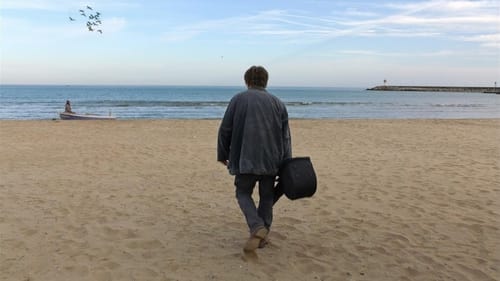
Producer
Kurdish composer Boran is no longer able to see the ocean, obstructed by a new building, and a tragedy befalls him…

Music
Kurdish composer Boran is no longer able to see the ocean, obstructed by a new building, and a tragedy befalls him…

Writer
Kurdish composer Boran is no longer able to see the ocean, obstructed by a new building, and a tragedy befalls him…

Director
Kurdish composer Boran is no longer able to see the ocean, obstructed by a new building, and a tragedy befalls him…

Producer
For Nariman the pilot and Helly Luv, an aspiring singer, being Kurdish is not just an identity; it’s a full-time job. Nariman needs young recruits for his flying school—a goal made darkly comic since he just survived a plane crash—while the illustrious Helly collects Kalashnikov rifles and a sea of Kurdish flags to produce her music video. In the midst of another war against the Kurdish people, Nariman reminisces about a long-lost love, and Helly finds herself connecting with Kurdish children at a refugee camp near the Syrian border, who are in urgent need of inspiration and hope.

Screenplay
For Nariman the pilot and Helly Luv, an aspiring singer, being Kurdish is not just an identity; it’s a full-time job. Nariman needs young recruits for his flying school—a goal made darkly comic since he just survived a plane crash—while the illustrious Helly collects Kalashnikov rifles and a sea of Kurdish flags to produce her music video. In the midst of another war against the Kurdish people, Nariman reminisces about a long-lost love, and Helly finds herself connecting with Kurdish children at a refugee camp near the Syrian border, who are in urgent need of inspiration and hope.

Producer
The fate of thousands of people is unified under the tarpaulins of the refugee camps in Kobanê and in Shingal. Kurdish filmmaker Bahman Ghobadi has given eight children the opportunity to use a camera to tell their own stories. Each film gives us a glimpse into the plight of the children, as seen through their own eyes. Their stories tell of young people with their whole lives ahead of them, though they’ve already lost almost everything. At a certain point, the film crew leaves the camp and follows the 13-year-old Mahmod and his sister in the search for his parent‘s house in Kobanê. The town has been ravaged by the war and all the children find is rubble. The eight films reveal the courage and openness of the young filmmakers, who share their stories with great intensity, realism and poetry, despite their harsh fate.

Director
For Nariman the pilot and Helly Luv, an aspiring singer, being Kurdish is not just an identity; it’s a full-time job. Nariman needs young recruits for his flying school—a goal made darkly comic since he just survived a plane crash—while the illustrious Helly collects Kalashnikov rifles and a sea of Kurdish flags to produce her music video. In the midst of another war against the Kurdish people, Nariman reminisces about a long-lost love, and Helly finds herself connecting with Kurdish children at a refugee camp near the Syrian border, who are in urgent need of inspiration and hope.
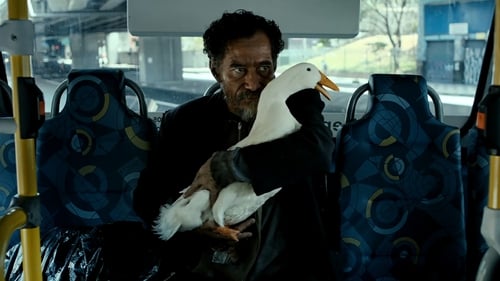
Screenplay
The first of four installments in the groundbreaking Heartbeat of the World anthology film series. Comprised of several short films by some of the world's most exciting directors, Words with Gods follows the theme of religion - specifically as it relates to an individual's relationship with his/her god or gods...or the lack thereof. In Words with Gods, each director recounts a narrative centered around human fragility, as well as environmental and cultural crises involving specific religions with which each has a personal relationship; including early Aboriginal Spirituality, Umbanda, Buddhism, the Abrahamic faiths, Hinduism, and Atheism. An animated sequence by Mexican animator Maribel Martinez is woven through each of the film segments, with each segment narratively connected as a feature-length film.

Director
The first of four installments in the groundbreaking Heartbeat of the World anthology film series. Comprised of several short films by some of the world's most exciting directors, Words with Gods follows the theme of religion - specifically as it relates to an individual's relationship with his/her god or gods...or the lack thereof. In Words with Gods, each director recounts a narrative centered around human fragility, as well as environmental and cultural crises involving specific religions with which each has a personal relationship; including early Aboriginal Spirituality, Umbanda, Buddhism, the Abrahamic faiths, Hinduism, and Atheism. An animated sequence by Mexican animator Maribel Martinez is woven through each of the film segments, with each segment narratively connected as a feature-length film.

Producer
A police officer finds himself haunted by a traumatic childhood memory as he searches for a missing man in the rugged mountains of Iraqi Kurdistan, in this striking feature debut by Batin Ghobadi.

Production Design
Kurdish-Iranian poet Sahel has just been released from a thirty-year prison sentence in Iran. Now the one thing keeping him going is the thought of finding his wife, who thinks he's been dead for over twenty years.

Producer
Kurdish-Iranian poet Sahel has just been released from a thirty-year prison sentence in Iran. Now the one thing keeping him going is the thought of finding his wife, who thinks he's been dead for over twenty years.

Director
Kurdish-Iranian poet Sahel has just been released from a thirty-year prison sentence in Iran. Now the one thing keeping him going is the thought of finding his wife, who thinks he's been dead for over twenty years.
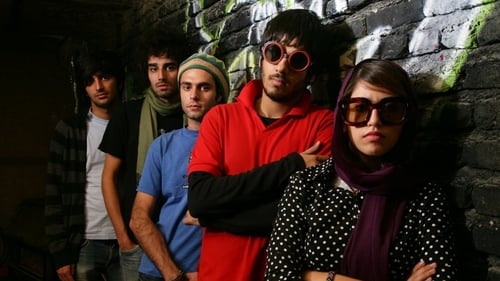
Production Design
La historia sigue a los músicos indie Negar y Ashkan, quienes tratan de grabar un disco, realizar un concierto y conseguir pasaportes que les permitirían abandonar Irán. (FILMAFFINITY)

Producer
La historia sigue a los músicos indie Negar y Ashkan, quienes tratan de grabar un disco, realizar un concierto y conseguir pasaportes que les permitirían abandonar Irán. (FILMAFFINITY)

Screenplay
La historia sigue a los músicos indie Negar y Ashkan, quienes tratan de grabar un disco, realizar un concierto y conseguir pasaportes que les permitirían abandonar Irán. (FILMAFFINITY)

Director
La historia sigue a los músicos indie Negar y Ashkan, quienes tratan de grabar un disco, realizar un concierto y conseguir pasaportes que les permitirían abandonar Irán. (FILMAFFINITY)

Screenplay
Mamo, an old and legendary Kurdish musician living in Iran, plans to give one final concert in Iraqi Kurdistan. After seven months of trying to get a permit and rounding up his ten sons, he sets out for the long and troublesome journey in a derelict bus, denying a recurring vision of his own death at half moon. Halfway the party halts at a small village to pick up female singer Hesho, which will only add to the difficulty of the undertaking, as it is forbidden for Iranian women to sing in public, let alone in the company of men. But Mamo is determined to carry through, if not for the gullible antics of the bus driver.

Producer
Mamo, an old and legendary Kurdish musician living in Iran, plans to give one final concert in Iraqi Kurdistan. After seven months of trying to get a permit and rounding up his ten sons, he sets out for the long and troublesome journey in a derelict bus, denying a recurring vision of his own death at half moon. Halfway the party halts at a small village to pick up female singer Hesho, which will only add to the difficulty of the undertaking, as it is forbidden for Iranian women to sing in public, let alone in the company of men. But Mamo is determined to carry through, if not for the gullible antics of the bus driver.

Art Direction
Mamo, an old and legendary Kurdish musician living in Iran, plans to give one final concert in Iraqi Kurdistan. After seven months of trying to get a permit and rounding up his ten sons, he sets out for the long and troublesome journey in a derelict bus, denying a recurring vision of his own death at half moon. Halfway the party halts at a small village to pick up female singer Hesho, which will only add to the difficulty of the undertaking, as it is forbidden for Iranian women to sing in public, let alone in the company of men. But Mamo is determined to carry through, if not for the gullible antics of the bus driver.

Director
Mamo, an old and legendary Kurdish musician living in Iran, plans to give one final concert in Iraqi Kurdistan. After seven months of trying to get a permit and rounding up his ten sons, he sets out for the long and troublesome journey in a derelict bus, denying a recurring vision of his own death at half moon. Halfway the party halts at a small village to pick up female singer Hesho, which will only add to the difficulty of the undertaking, as it is forbidden for Iranian women to sing in public, let alone in the company of men. But Mamo is determined to carry through, if not for the gullible antics of the bus driver.

Himself
Today Iranian cinema is one of the most highly regarded national cinemas in the world, regularly winning festival awards and critical acclaim for films which combine remarkable artistry and social relevance. Iran: A Cinematographic Revolution traces the development of this film industry, which has always been closely intertwined with the country's tumultuous political history, from the decades-long reign of Reza Shah Pahlevi and his son, the rise of Khomeini and the birth of the Islamic Republic, the seizure by militants of the U.S. Embassy in Tehran, and the devastating war with Iraq.
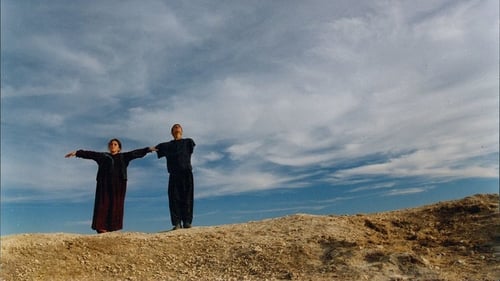
Screenplay
Los habitantes de un campo de refugiados del Kurdistán iraquí buscan desesperadamente una antena parabólica para poder estar informados del inminente ataque americano contra Irak. Los niños del campamento, liderados por un chico al que llaman "Satélite", se dedican a la recogida y venta de minas antipersona. Nuevos refugiados llegan al lugar: un joven mutilado, su hermana y un niño pequeño. Satélite quedará prendado de la triste belleza de la joven.

Production Design
Los habitantes de un campo de refugiados del Kurdistán iraquí buscan desesperadamente una antena parabólica para poder estar informados del inminente ataque americano contra Irak. Los niños del campamento, liderados por un chico al que llaman "Satélite", se dedican a la recogida y venta de minas antipersona. Nuevos refugiados llegan al lugar: un joven mutilado, su hermana y un niño pequeño. Satélite quedará prendado de la triste belleza de la joven.

Producer
Los habitantes de un campo de refugiados del Kurdistán iraquí buscan desesperadamente una antena parabólica para poder estar informados del inminente ataque americano contra Irak. Los niños del campamento, liderados por un chico al que llaman "Satélite", se dedican a la recogida y venta de minas antipersona. Nuevos refugiados llegan al lugar: un joven mutilado, su hermana y un niño pequeño. Satélite quedará prendado de la triste belleza de la joven.

Director
Los habitantes de un campo de refugiados del Kurdistán iraquí buscan desesperadamente una antena parabólica para poder estar informados del inminente ataque americano contra Irak. Los niños del campamento, liderados por un chico al que llaman "Satélite", se dedican a la recogida y venta de minas antipersona. Nuevos refugiados llegan al lugar: un joven mutilado, su hermana y un niño pequeño. Satélite quedará prendado de la triste belleza de la joven.

Screenplay
This documentary shows us how a Daf elaborated. It's about a family that all their children are blinded and they're running their family business. They're making Dafs which is an Iranian hand percussion musical instrument and nowadays it's mostly played in Kurdish folk songs.

Director
This documentary shows us how a Daf elaborated. It's about a family that all their children are blinded and they're running their family business. They're making Dafs which is an Iranian hand percussion musical instrument and nowadays it's mostly played in Kurdish folk songs.

Director
Akihiro, who lives in an old apartment building in Tokyo, makes songs and sings on the streets; Fei, a street musician who makes a living making a living by making the Iranian traditional instrument 'Daf', but does not neglect to play every night; A film director who travels around Seoul with a digital camera .

Producer
During the war between Iran and Iraq, a group of Iranian Kurd musicians set off on an almost impossible mission. They will try to find Hanareh, a singer with a magic voice who crossed the border and may now be in danger in the Iraqi Kurdistan. As in his previous films, this Kurdish director is again focusing on the oppression of his people.

Screenplay
During the war between Iran and Iraq, a group of Iranian Kurd musicians set off on an almost impossible mission. They will try to find Hanareh, a singer with a magic voice who crossed the border and may now be in danger in the Iraqi Kurdistan. As in his previous films, this Kurdish director is again focusing on the oppression of his people.

Director
During the war between Iran and Iraq, a group of Iranian Kurd musicians set off on an almost impossible mission. They will try to find Hanareh, a singer with a magic voice who crossed the border and may now be in danger in the Iraqi Kurdistan. As in his previous films, this Kurdish director is again focusing on the oppression of his people.
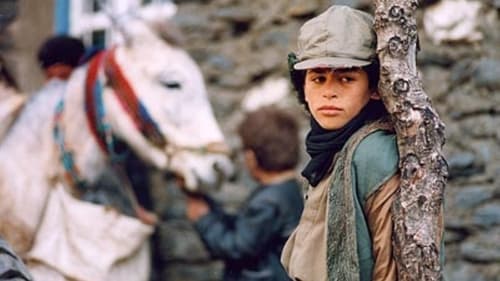
Art Direction
Unos jóvenes kurdos iraníes intentan salvar al más joven de ellos que esta gravemente enfermo.

Producer
Unos jóvenes kurdos iraníes intentan salvar al más joven de ellos que esta gravemente enfermo.

Screenplay
Unos jóvenes kurdos iraníes intentan salvar al más joven de ellos que esta gravemente enfermo.

Director
Unos jóvenes kurdos iraníes intentan salvar al más joven de ellos que esta gravemente enfermo.

Reeboir
Con una pizarra al hombro, un grupo de profesores recorre las montañas kurdas, en la frontera entre Irán e Iraq, a la búsqueda de alumnos. La lucha diaria por la supervivencia no deja a la población ni tiempo ni fuerzas para aprender. Dos profesores, Said y Reboir, se separan del grupo: Reboir encuentra unos niños dedicados al contrabando de objetos robados; Said se une a un grupo de ancianos kurdos que, antes de morir, desean volver a ver la tierra donde nacieron, en territorio iraquí. Las guerra se mantiene siempre en un segundo plano, pero está omnipresente en el constante ruido de las ametralladoras.
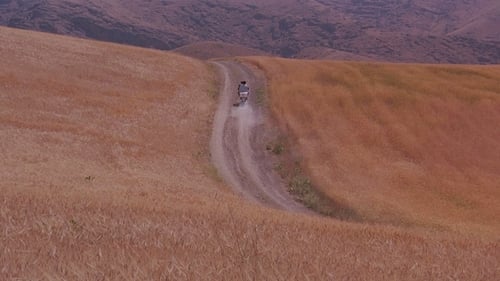
Assistant Director
El rodaje de una película en la pequeña localidad kurdo-iraní de Siah Dareh provocará una pequeña revolución entre los habitantes del pueblo, convencidos de que los miembros del rodaje son en realidad buscadores de un tesoro que se halla en el cementerio local.

El rodaje de una película en la pequeña localidad kurdo-iraní de Siah Dareh provocará una pequeña revolución entre los habitantes del pueblo, convencidos de que los miembros del rodaje son en realidad buscadores de un tesoro que se halla en el cementerio local.










